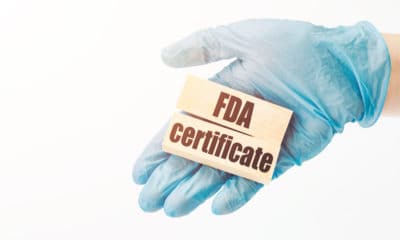For two days in March, the FDA held a meeting to take a deeper look at the potential risks surrounding breast implants. Plastic surgeons, breast implant manufacturers, and patients came together to share their input and concerns on the topic of breast implant safety.
During the FDA meeting, a discussion took place about the possibility of placing a black box warning on breast implants. The reason behind the proposed warning label is the fact that textured implants are associated with a rare type of cancer known as Breast Implant-Associated Anaplastic Large Cell Lymphoma, or BIA-ALCL.
In Episode 69 No Spin Live, Dr. William P. Adams Jr. invites breast surgery experts and board certified plastic surgeons Dr. Jason Pozner of Boca Raton, Florida and Dr. Joseph Hunstad of Huntersville, North Carolina to share their thoughts on the potential black box warning.
What is a Black Box Warning?
A black box warning is a strict warning put on the label of prescription drugs or drug products by the FDA when there is evidence of a serious risk of adverse reaction or hazard. The warning itself is surrounded with a black box, which is intended to draw attention to the warning, setting it apart from the rest of the text on the label.
Textured vs. Smooth Implant Risks
“I’m not a fan of textured implants,” Dr. Pozner begins. “I tell the patient that I don’t like to use textured implants, that I wouldn’t recommend them I wouldn’t put them in my family member. By going with smooth implants, you basically have zero risk of ALCL. So, if you’re going to put a warning label on a box of smooth implants it doesn’t make a lot of sense to me. I do think it behooves us to discuss the pros and cons of any procedure we do with our patients.”
“I currently use only smooth implants,” agrees Dr. Hunstad. “I have used textured in the past, when I used form stable implants. If you’ve got an anatomic form stable implant, and it’s smooth, it won’t stay in position. It needs to be textured to hold firm. The FDA understands this and realizes the risk is extraordinarily rare, so they have kept textured implants on the market.”
Patients Need to Know All of the Risks Involved with Implants Before Surgery
Informed consent is the term given to the time in which a patient learns about all of the potential risks and benefits involved with surgery prior to agreeing to proceed with the procedure.
“It’s something that we really owe our patients as far as achieving informed consent,” continues Dr. Hunstad. “It’s a process, sharing with them all the risks and possible complications, so they can weigh the benefits versus the risks. ALCL is part of our conversation.”
Warning for Who? Patients Don’t See the Box, Surgeons Do
Unlike a drug a patient might pick up at the pharmacy and take home to administer themselves, breast implants are shipped directly to the surgeon from the manufacturer. The box is opened in the operating room at the time of surgery.
“Buying a breast implant is not like buying a pack of cigarettes, where they give it to you, and you get to read the black box warning,” points out Dr. Pozner. “If there’s something on the label, of the implant box, the consumer will never see this.”
After surgery, patients are provided with a breast implant identification card, or device identification card. This card contains information about the style and size of the implants, as well as their serial numbers.
The box, however, is not something the patient would ever handle or read, so it begs the question – would the black box warning be effective?If the goal is patient awareness, perhaps not. If the goal is surgeon awareness, maybe.
“This is about creating awareness. The FDA wants to know what the best thing would be to do,” points out Dr. Adams. “You want to create surgeon awareness. If it does, I think we’re all for it.”
Surgeon Awareness of BIA-ALCL is on the Rise
A black box warning, however, may not be the best way to raise surgeon awareness, the surgeons contend. The American Society for Aesthetic Plastic Surgery (ASAPS) and the American Society of Plastic Surgeons (ASPS) are two major societies holding meetings and educational events aimed at raising awareness of plastic surgeons.
“The awareness about BIA-ALCL amongst surgeons has gone up probably 10,000% in the past three years, just through educational venues,” adds Dr. Adams.
“With all the electronic information that is disseminated now, there’s no reason why any of our peers are not kept up to date on all of the new things in plastic surgery,” agrees Dr. Pozner. “Everyone knows about this now. If someone doesn’t know about ALCL, they’ve had their head in the soil for a couple years.”



















Facebook
Twitter
Instagram
YouTube
RSS